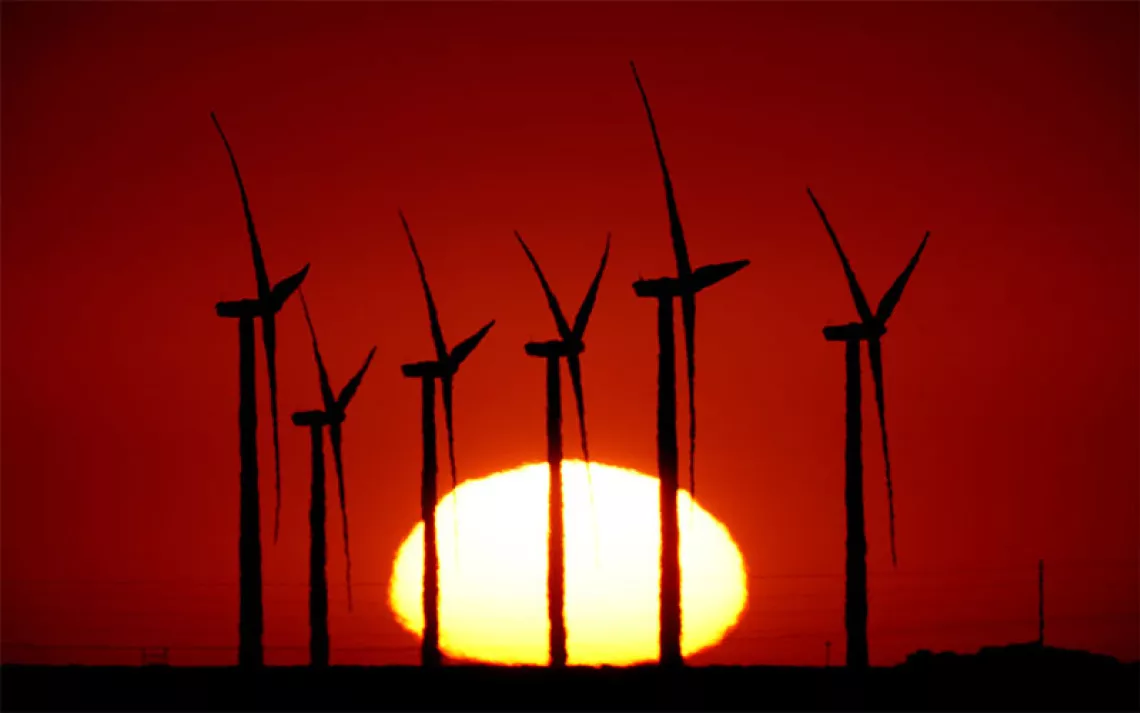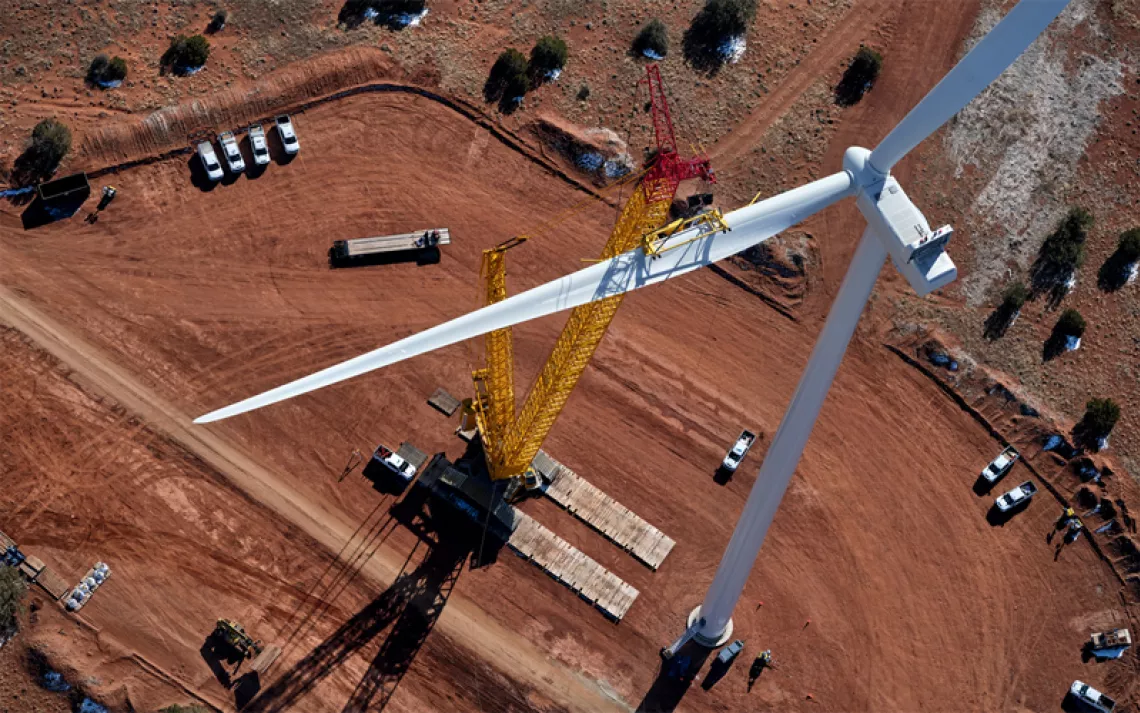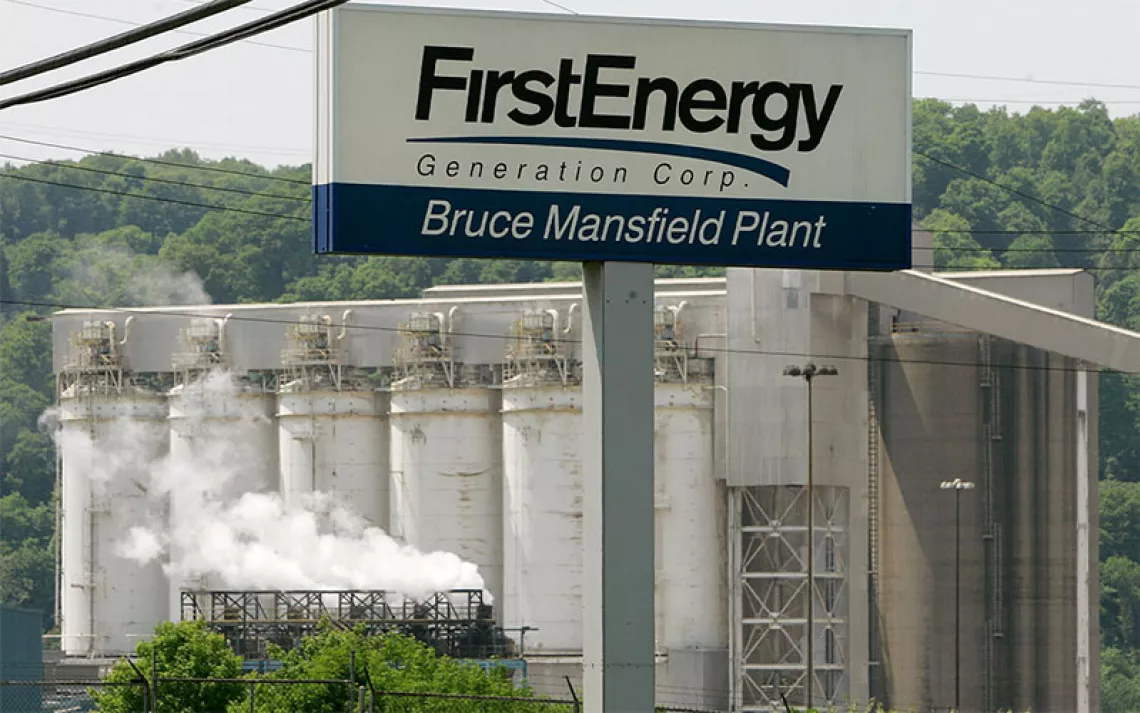North Carolina Wind Farmer Likes It Just Fine
Horace Pritchard says if you don't like wind power, don't flip the switch on
Adapted from an interview with Horace Pritchard by Margaret Lillard.
Our farm is in Pasquotank County. I've lived in Elizabeth City in the same place all my life, 67 years. My son and I farm about 1,600 acres. We grow corn, soybeans, and wheat. Looking behind us, you'll see the wind turbines—we have nine. We're part of the Amazon Wind Project.
A little over seven years ago, I got a phone call from Iberdrola [now Avangrid Renewables]—I couldn't pronounce it at that time. I thought it was something about renewable energy for your house. I didn't return the call. A couple days later, I got it again and talked with a gentleman who explained to me that the company was looking for people to put turbines on their land.
I called some people who already had wind turbines; every one of them was well pleased, and most of them said if they could get some more, they would take 'em. From that day forward, we've been involved with it. It's amazing to see how quick they went up. We're talking about close to 12 months ago that they started. Now when I go out to plow, it comes natural to see 'em—no more than fence posts standing out there.
I would encourage anybody who is looking for something to diversify their farming, this is something you can work with. Several years ago, the state college was saying you need to diversify—you need hogs, or grain crops, or whatever. When the turbines first came, corn had hit a high, about $8 [per bushel]; soybeans were $12 to $13. I said to some of the guys, "Look, you're making a little money, but suppose you have that year when you don't raise anything and you get a few thousand dollars coming in. When that payment comes, it's better to have it than not have it."
I do not expect having the turbines will change our farming one bit. We just have a little teeny bit less land than we had before. The footprint of the turbine is about 50 feet in diameter; then there's a pad that is about 40 by 60. It's rocked, so if the company ever has to come back in with a crane, it's there. They told us we could use the pads as a place to park equipment on.
The best thing for me personally is the roads that they put in. This land was timberland that was cleared back in the '80s. When we go to hauling out grain, we used to have to pull through sandy roads, muddy roads. Now we have four and a half miles of state-of-the-art roads; it's up to spec for the heavy equipment.
It has been great for the business community here. I'm a former county commissioner. I used to be chairman of economic development. Start with the taxes that go to the county: There's going to be some $500,000-plus going to the county in property tax. That money will help everybody here who pays taxes, and it will increase. Then there's the lease payments that the landowners receive—that money is going to basically be spent in the area, so it turns over again. I know Pasquotank has a lot of school debt—the taxes can help with that, and with infrastructure. I'd hope they would put some aside for a rainy day. It's a wind farm, but it's a win-win for the county.
Where it's located, it shouldn't impact anyone adversely. The turbines had to be located far enough away from landowners who chose not to be a part of [Amazon Wind], to not impact them. I'm getting more comments from people liking what they see. I have even had three landowners who declined to be part of the project come to me asking can they get on. My understanding is that they missed the boat.
The way I see it, the wind is free, and we can't stop it. It blows 24 hours a day seven days a week. It's clean—it can't get any cleaner than the air. The wind's not going to cost any more 10 years from now than it costs today. Everyone is saying that our country needs to get energy independent—this is the way of doing it. I don't like us sending all of our money overseas to countries that are going to fight us back, but we don't have to worry about the wind blowing. If you don't like it, don't flip the switch on. That's pretty much the way I feel about it.
This article appeared in the November/December 2017 edition with the headline "Hogs, Grain, and Wind."
 The Magazine of The Sierra Club
The Magazine of The Sierra Club



